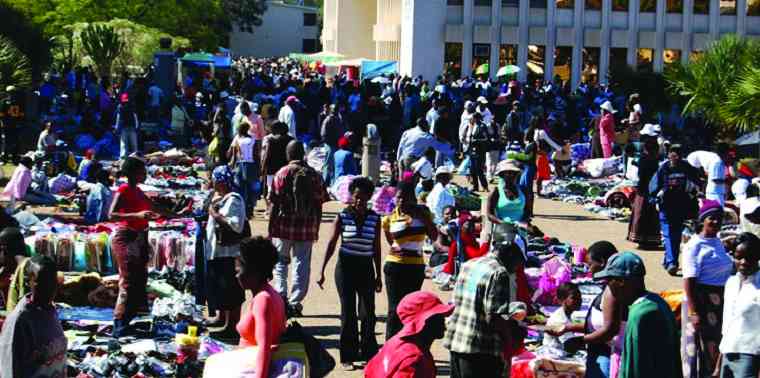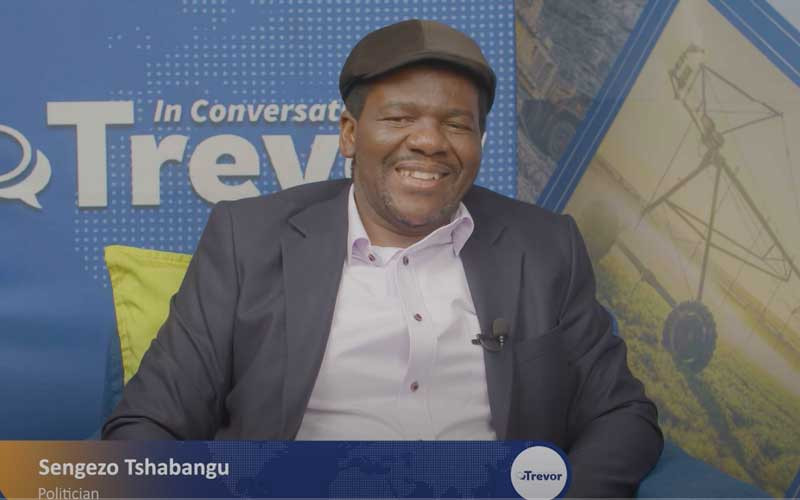
AS the new information age ‘blossoms’, growing asymmetries between public and development policies on the one hand, and the worsening conditions of human life and security on the other remain a major source of anxiety and concern for analysts.
In 2024 humankind is equipped with literally, great depositories of scientific information and knowledge that can be channeled into development policies and programmes, to turn around social and economic destinies of entire nations, whose every new day brings with it the specter of insecurity; drought, famine, unemployment, disease and poverty.
As a social science discipline, or development science subject, economics is essentially about how humanity can thrive in the world of expanding needs and wants on the one hand and natural and capital resources on the other hand.
Just as the economics discipline has over centuries evolved and expanded in its depth and scope, significant changes have taken place in the field of development policy.
Today nations of the world employ government ministers charged with the responsibility for economic, financial and development affairs.
Their brief being to direct economic growth and development processes in a manner that yields maximum benefits for the nation in terms of population access to basic needs; food, shelter water and clothing.
But, with the turn of the 21st century, the development discourse is also spilling over beyond the terrains of economic policy analysts and becoming of special interest to everyone else, including theologians and law makers.
In their 2023 Finding Hope in Diversity report, the Zimbabwe Council of Churches (ZCC) study explores political, economic, environmental technological and social dimensions of life for the citizen in Zimbabwe today.
- Cleric at Zanu PF congress sends tongues wagging
- ‘3,8% economic growth not feasible’
- Give unto Caesar, churches urged
- Respect life, Church tells parties
Keep Reading
The ZCC report makes three interesting observations:
Deepening anxiety
Deepening anxiety and concern among Zimbabweans about the failure of public and development policy, manifest through lack of jobs and income, growing lack of population access to basic commodities and basic services, and worsening quality of life.
The informalisation of the economy
In Zimbabwe informal markets are, for the majority, increasingly the major source of goods, services and income. This also implies deep losses in employment where investments had been made in formal economic institutions.
Well-functioning formal institutions (including banks and finance, insurance and deposit protection houses) are cogs that drive the engines of an economy by fostering efficiency, effectiveness, accountability and transparency in the execution of policy decisions.
It becomes a key responsibility of the state, and a key function of economic governance, for properly functioning institutions and structures to be established.
Just as informalisation raises costs of access, it limits efficiency, and undermines policy initiatives for greater effectiveness, accountability and transparency in the allocation of resources.
In informal setting household incomes, paid at the official but lower exchange rate, do not grow as fast as illegal rewards on parallel markets. Meaning the economy is on a determined drift towards dysfunctionality.
And just as citizens are tempted to source local currency on parallel markets (using their meagre earnings) so they can pay for local public services, (which are priced in domestic currency) the state is operating at a loss.
When citizens have to access the national currency at parallel rates through informal markets, they will be paying an enormous cost, (additional to their taxes), for the incompetence and failure of their policy leaders.
Precarious dependence on rains
Being principally agricultural, subsistence farming is key to Zimbabwe’s food security and national livelihood. Since the 1990s, there has been the general failure of domestic grain production to cope with expanding population demand.
Zimbabwe’s 2023/24 agricultural season was characterised by below average rainfall, and drought affecting large parts of the country.
Zimbabweans enter the 2024/25 public budgeting season deeply reflecting on how the proportion of 62% of the population can access their health services within their wards, to bring health services closer to the people who need them.
When people live far away from health services it means people have to fork out out-of-pocket cash to access health, a key feature of an informalised economy.
But while the informal economy drives up the prices of basic commodities, it is no guarantee that the quality of health, education or public infrastructure improves.
According to the ZCC report, Zimbabwe’s health services are poor for 81% of the population; education is also poor, being increasingly unaffordable for 60% of the people.
Around 70% of school drop outs are girls because of high fees, child pregnancies (rural and urban), child marriages (in rural areas mostly), as well as because of drugs and substance abuse.
Around 87% of Zimbabweans acknowledge the existence of the drugs problem facing, especially the youth, and the chief causes of this challenge being unemployment, lack of parental guidance, and recreation.
Quite worrisome is the finding that artisanal miners use drugs to do their work as an energiser.
Further confirming that policy inconsistencies, instability, economic uncertainty and inequalities associated with informalisation represent additional burdens onto the backs of struggling communities.
In terms of the ZCC report, for 86% of the population the economic environment is poor, corruption is endemic, and that there is a fall in the level of trust in public institutions.
Human suffering and pain is further complicated and worsened by a pervasive culture of political intolerance and impunity.
Former United States president Barrack Obama is on record saying ‘change (from situations of depression, adversity, human suffering) require more than righteous anger, and that it requires a programme inspired by a well-articulated vision, mission statement, goals, objectives, targets and activities’.
As the Bible (Luke 1:28) states; “Suppose one of you wants to build a tower. Will you not first sit down and estimate the cost and see if he has enough money to complete it?”
An informal economy is quite a tower, but inconsistent with Zimbabwe’s vision of prosperity by 2030.
Analyst Tendai Mbofana notes that Zimbabwe’s 2030 Vision of a middle-income economy is unrealistic, as it entails a 164%-712% jump in GDP performance from the present.
Economic justice, an emerging concept in the development discourses, draws on an overlap of law, theology and economics, in an attempt to deal with the challenge of collapsing economies in many parts of the world.
Quite arguably, Africa has what it takes as natural resources to lead other regions of the world in economic development.
The continent also has a rich historical experience, (stretching back into centuries of slavery, colonialism, and more recently, The New Scramble) to inform policy discourses.
Economic Justice brings in the dimension of ethics where the looting of local resources by foreign nationals is proceeding unabated, and where beneficiaries of large extractive projects tend to include everyone else, except local communities.
In early August 2023, Takavafira Zhou, who was a candidate for the Mberengwa Central Constituency parliamentary seat, called on local communities in Mberengwa and those operating as Kuvimba Mining House to address corruption, and specifically, ‘the massive looting of lithium and K grade emeralds’ in Mberengwa (www.masvingomirror.com).
Describing the looting as ‘criminal and irresponsible’ given the environmental catastrophe resulting from mining activities, the destruction of roads caused by truckloads of precious minerals being ferried to unknown destinations, and the health and welfare of local communities exposed to dust spewing from mining activities.
Zhou challenged the government to protect local communities and the interests of the nation at large. Since the launch of Prospect Lithium Mine in Goromonzi in 2021, the district is threatened by the same policy and environmental challenges.
Presentations at a graduation ceremony for pastors at the Ecclesia Bible Institute in Harare in July highlighted interfaces between development policy and the emotional and psychological status of society.
In the words of one presenter, “failure at public policy level is disastrous, threatening to wipe out an entire generation of our youth, who presently not only comprise 65% of the population, but are also presently engaged in deep struggles to recover from depression and drug addiction, side-effects of unemployment and poverty”.
Manyanya is an economist and policy analyst. These weekly New Perspectives articles, published in the Zimbabwe Independent, are coordinated by Lovemore Kadenge, an independent consultant, managing consultant of Zawale Consultants (Pvt) Ltd, past president of the Zimbabwe Economics Society and past president of the Chartered Governance & Accountancy Institute in Zimbabwe. — [email protected] or +263 772 382 852.






